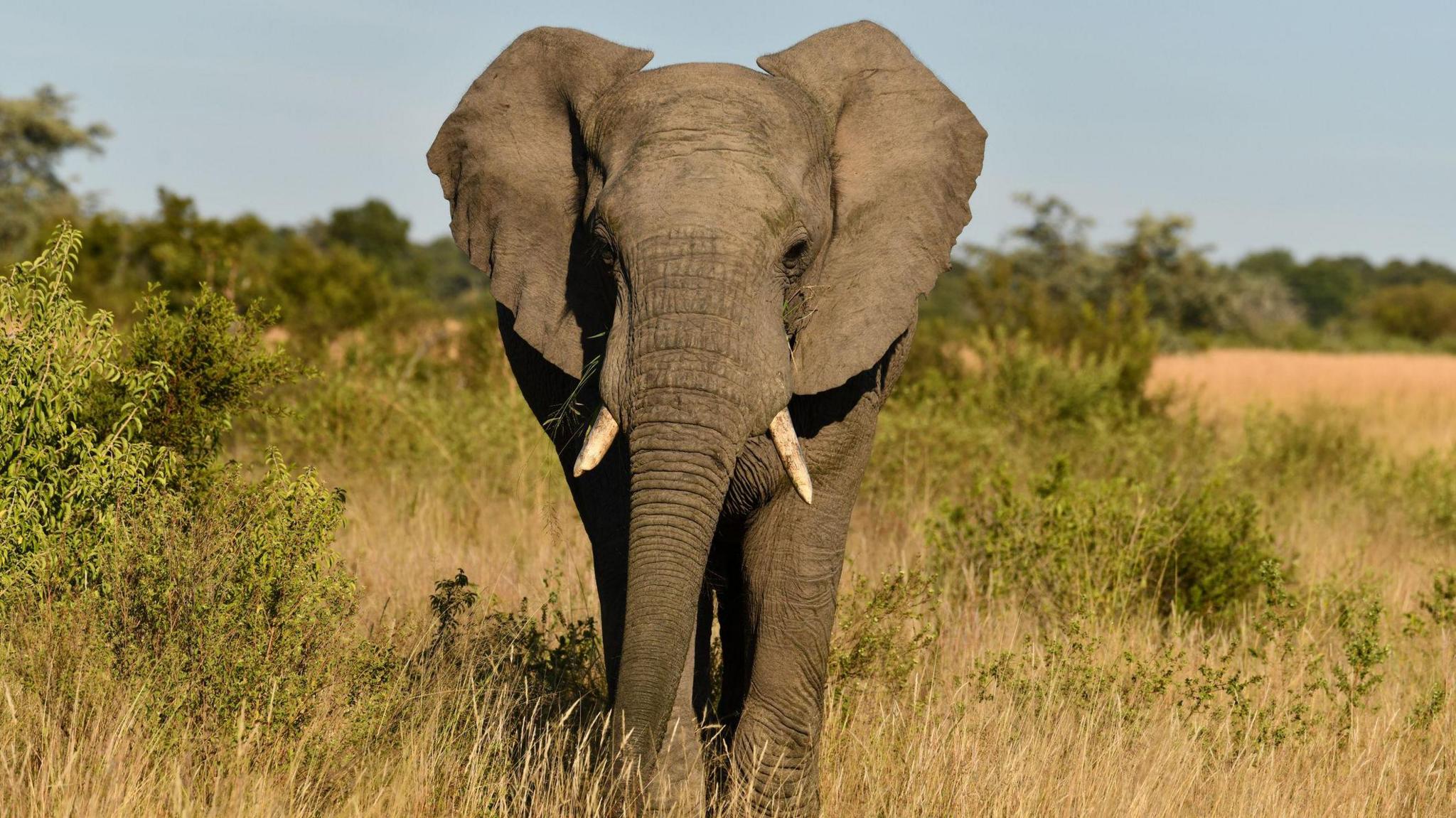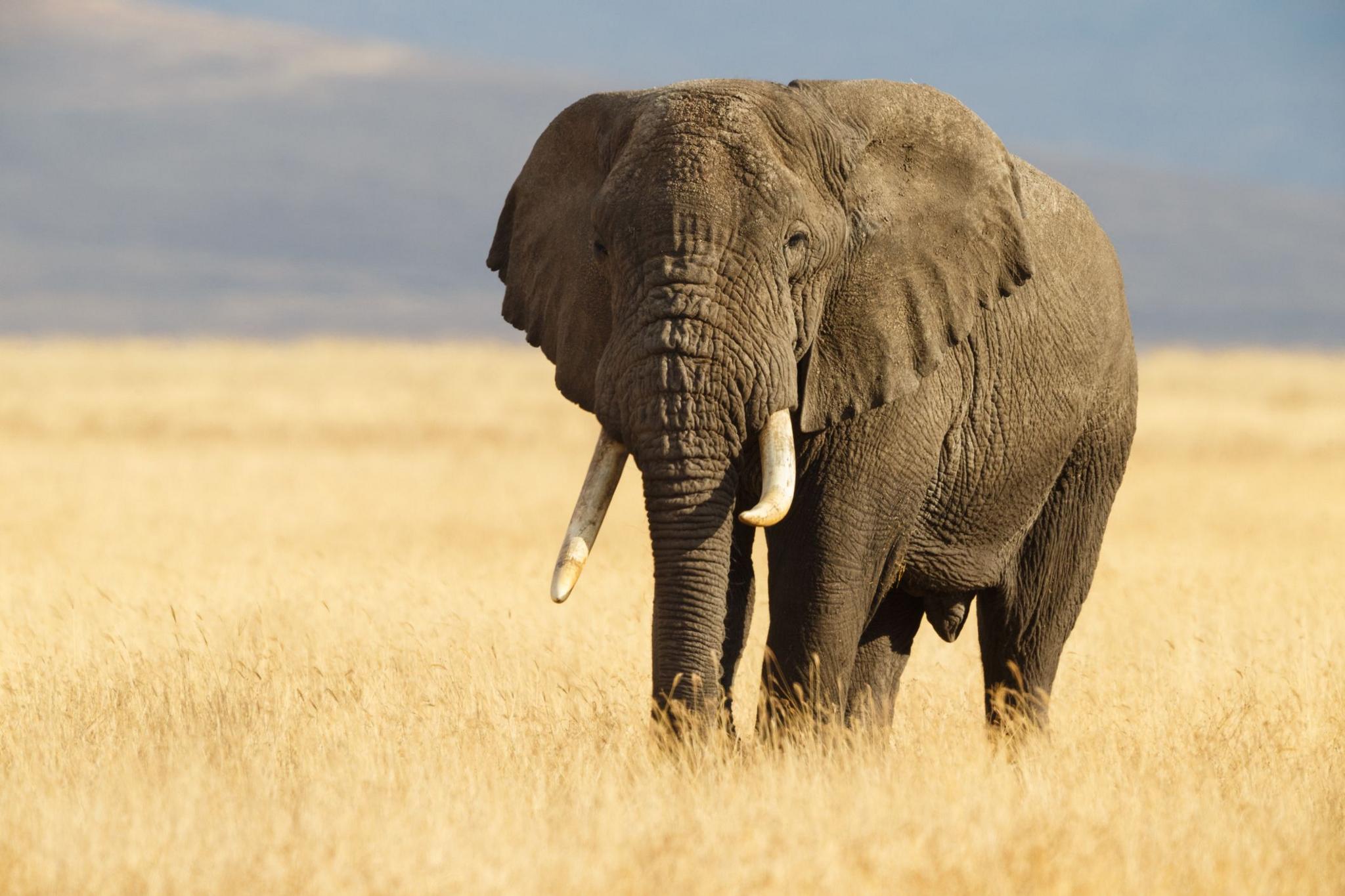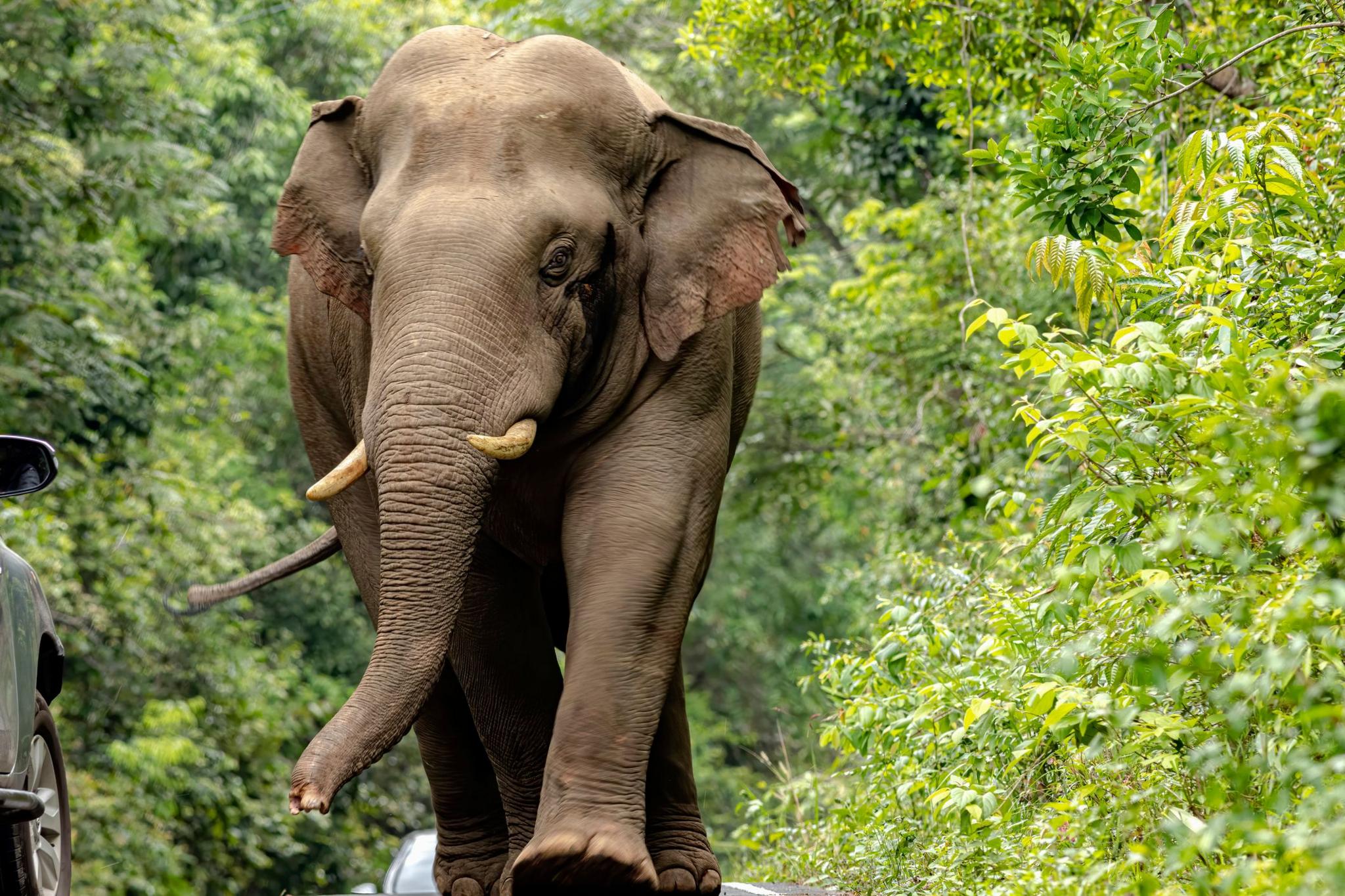World Elephant Day 2025: Amazing facts about elephants

- Published
World Elephant Day takes place on August 12 and the theme for 2025 celebrates the matriarch elephant.
A matriarch elephant is the leader of the elephant family or herd. She is the oldest, most dominant female.
Adult females work together to protect and bring up the babies, or calves. A family can range in size from 3 elephants to as many as 25.
Keep reading to try our quiz and find out all about African and Asian elephants.
More on elephants
Elephants call to each other by name
- Published11 June 2024
Elephant wrinkles can tell us if they're left or right trunked
- Published9 October 2024
Male elephants 'rumble' when it's time to move on
- Published25 July 2024
There are three species of elephant in the world and they are found in Africa and Asia
In Africa you can find the African bush elephant and the African forest elephant. There is only one species of Asian elephant.
The African Forest elephant is listed as critically endangered while the Savanna elephant and Asian elephant are listed as endangered on the IUCN Red List of Threatened Species.
Both species of African elephants are endangered due to people killing them for their ivory tusks. This is called poaching.
They are also at risk due to habitat loss and their habitat being broken up into smaller isolated patches. This is called fragmentation.
Habitat loss and fragmentation also puts Asian elephants at risk as well as negative interactions with humans.

They are more skilled on one side - just like us!
Did you know elephants can be right or left-tusked, just like we can be right or left-handed?
You can usually tell which is their preferred tusk as it will be more worn down than the other one due to being used more.
They need hardly any sleep
Researchers have found that African elephants in the wild sleep an average of two hours a day.
They can also regularly go nearly two days without any sleep at all! Imagine what you could do with all those extra hours!
How long do elephants go to sleep for?
Elephants have an amazing sense of smell
African elephants have a sense of smell that is likely the strongest ever identified in a single species, according to a study by scientists from the University of Tokyo.
Elephants have nearly 2,000 special receptors that detect odours in the environment.

They use their poo as satnav!
Elephants use other elephants' droppings as a way to keep on track when they're on their travels.
African savannah elephants, particularly those travelling alone, follow the scent of dung and urine left by others to make sure they're travelling in the right direction.
